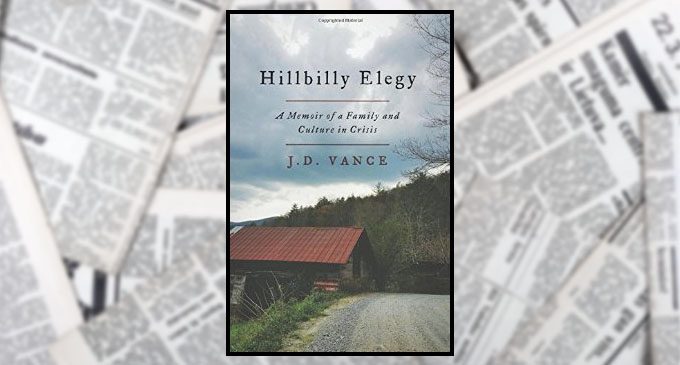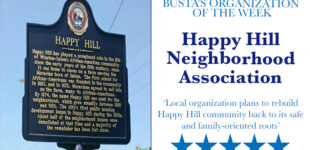Commentary- Hot Hillbilly book: White skins, black masks

Bill Turner
Guest Columnist
Those who want to read an extremely rare book that speaks to the similarities between poor whites and poor blacks – especially in this white hot summer of presidential politics, where race and class fertilize the ground on which Donald Trump runs – must read “Hillbilly Elegy: A Memoir of a Family and a Culture in Crisis,” by J. D. Vance.
Vance, 34, an ex-Marine who holds a Yale law degree – through a walk down memory lane paved with the dysfunctions of his extended white working-class family, whom he calls with a comical and witty familiarity and warped sense of loyalty everything from “mountaineers,” to “trailer trash,” to “rednecks” – opens the view to the demoralized whites to and for whom Donald Trump speaks. Mr. Vance’s chronicle jumps between the homeland of his “Mawmaw” and “Pawpaw” in the coalfields of Eastern Kentucky to Middletown, Ohio to where they migrated after WW II – north to find manufacturing jobs. In the Appalachian heartland of Kentucky and West Virginia – indeed among millions of whites through-out America – there is a feeling of powerlessness as their way of life, the advantages and privileges white-ness gave them, is being devastated.
With their world of work shattered and their conservative world views called into question, the traditional values, norms, and behaviors of the white working class have devolved into a new code, a new set of self-destructive conduct. Elegy reads like Vance is writing about pigeon-holed poor black people in Central Harlem, not stereotyped poor white people in Harlan County, Kentucky or Central Appalachia. It reads like pages torn from Daniel Patrick Moynihan’s 1965-dated report, “The Negro Family: The Case for National Action.”
Moynihan argued more than a half century ago that “the deterioration of the Negro family is the fundamental source of the weak-ness of the Negro community.” Substitute the key words with deindustrialization and globalization and you have the tangle of pathology that affects the white working class: family dysfunction, drug and alcohol addiction, crime, and intergenerational welfare.
In the Rust Belt swaths of America described by Vance, life for many work-ing class whites is crumbling and disintegrating. “Where’s my white privilege?” “My white life matters, too!” “They’re taking our jobs!”
Mr. Vance does not ask what America is doing for the white working class, but rather he points out what they are doing to themselves. “Hillbilly Elegy” blames and buries a lot of the victims of a changed America. Vance does not spend much time on the effect of the disappearance of blue-collar jobs and what it means to be isolated from the edu-cated, elite, and effete, white American main-stream. That’s something poor black people have also known a lot about for a very long time.
The last book about working class and impoverished white people to charge up the air to such a sizzling level was Harry Caudill’s 1963-published “Night Comes to the Cumberlands.” Will the government’s reaction to “Hillbilly Elegy” be the same – a new War on Poverty? I certainly hope not because the War on Poverty that started in Appalachia in 1965 came up with some mirror image skirmishes for urban blacks’ way out of their despair and want – Model Cities and Urban Renewal.
Those agendas, plans, policies, and courses of action only masked the troubles of disadvantaged whites and blacks. We shouldn’t put any more skin – of any color – in those same old poverty programs. In the end, Mr. Vance’s funeral song about the white working class reads like the autobiography of Supreme Court Justice Clarence Thomas: in order make his point he badmouthed his own people – blamed the victims.
Dr. Bill Turner is a noted educator, writer and thinker who called Winston-Salem home for many years. Reach him at bill-turner@comcast.net.















